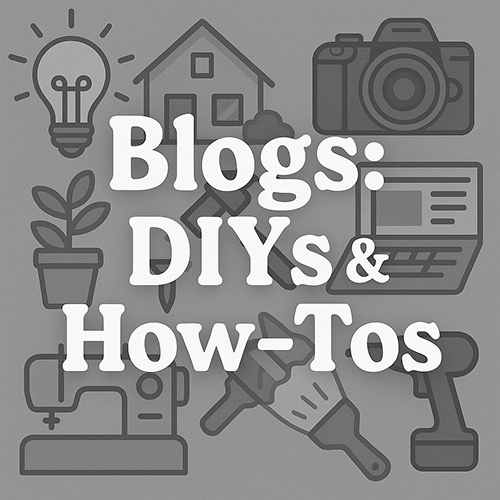Let Social Anxiety Hate To See You Come
Ever walked into a room and suddenly became hyper-aware of your posture, voice, or facial expressions?. Your palms sweat, your heart races, and your mind crafts an escape route before you’ve even said "hello". If this sounds familiar, you’re not broken, you’re only human. And you just might be one of the 301 million people living with some form of anxiety disorder including 58 million children & adolescents, according to the World Health Organization (WHO).
Even if your case isn’t clinical, many people experience what psychologists call situational social anxiety i.e. anxiety triggered by specific events like public speaking, parties, or networking. But here’s the truth: You can learn to rewire your response to social settings. Below, we’ll explore powerful techniques that blend psychology, neuroscience, and ancient wisdom to help you stop shrinking and start showing up.
1. 🧠 Understand the Root: Your Brain Isn’t Failing You
Social anxiety isn’t irrational, it’s just misdirected survival wiring. From an evolutionary standpoint, being accepted by your tribe meant survival. Rejection? Possibly means death. Today, this manifests as a hypersensitive amygdala, the brain’s fear center, overreacting to imagined judgment.
Scientific Insight: A 2013 fMRI study from Uppsala University found that people with social anxiety show increased amygdala activation even when viewing neutral facial expressions.
Reframe It: Your body is trying to protect you, not sabotage you. Instead of fighting the anxiety, acknowledge it: “Hey, I see you. Thanks for trying to help but I’m safe.”
2. 🪞 Power Pose, Power Mind
Before entering any nerve-wracking social setting, step into the bathroom and try this:
- Spread your feet shoulder-width apart
- Stand tall, chin up, arms on hips (like a superhero :) )
- Hold for 2 minutes while breathing deeply
📖 Harvard researcher Amy Cuddy found in her landmark 2010 study that power posing increases testosterone (confidence hormone) and decreases cortisol (stress hormone), enhancing self-assurance even before you speak.
💡Pro Tip: Pair it with an empowering phrase like: “I’m grounded. I’m enough. I belong here.” This reaffirms the induced feeling and rewires your mind to feel you're in control of the situation and perfectly fine.
3. 🧘♀️ Breathe Like a Navy SEAL
Your breath is the bridge between your body and brain. When anxious, you breathe fast and shallow. Reverse this with a technique Navy SEALs use to stay calm in combat: Box Breathing.
Try This:
- Inhale 4 seconds
- Hold 4 seconds
- Exhale 4 seconds
- Hold 4 seconds
- Repeat for 4-5 cycles
Neuroscientific backing: Controlled breathing activates the vagus nerve, shifting you from fight-or-flight to calm-and-connect mode.
4. 🎭 Use Cognitive Roleplay: "The Confident You"
In social situations, don’t try to become someone else, become a version of yourself turned up by 10%. This is known as “self-distancing,” a cognitive-behavioral strategy. Instead of being you in a panic, pretend you’re an actor portraying a poised, relaxed character. Your brain will follow suit especially when your body mirrors that behavior. Even Beyoncé reportedly created her confident stage persona “Sasha Fierce” to overcome pre-show anxiety.
Practical Trick: Name your confident self and step into them when needed.
5. 👂 Be the Listener, Not the Star
Here’s the secret most people forget: You don’t need to be interesting, you only need to be interested.
- Ask open-ended questions: “How did you get into your field?”
- Reflect back what people say: “So you’re saying...”
- Use “active nodding” and micro-expressions to show you’re engaged
Dale Carnegie in How to Win Friends and Influence People wrote, “You can make more friends in two months by becoming interested in others than you can in two years by trying to get people interested in you.” Focusing outward reduces inward anxiety.
6. 💬 Silence the Inner Critic with Cognitive Defusion
Social anxiety often spirals due to negative internal narratives:
“They think I’m weird.”
“I shouldn’t have said that.”
“Everyone’s looking at me.”
Use a technique from Acceptance and Commitment Therapy (ACT) called cognitive defusion:
- Label the thought: “I’m noticing that I’m having the thought that I’m being judged.”
- Then say it in a cartoon voice or sing it. This makes it feel absurd and it loses power.
Studies published in Behavior Research and Therapy show that defusion techniques reduce anxiety and improve social performance.
7. 🕊️ Practice Post-Event Reframing
Most socially anxious people suffer not just during the event but afterward. It’s called post-event rumination and it's exhausting. Instead of replaying what went wrong, ask:
- What did I handle well?
- What surprised me?
- What can I improve with love and not judgment?
Dr. David Burns, author of the book Feeling Good, advises using a Thought Record. Write your negative belief, then counter it with logic and truth.
8. 🏃♂️ Train Your Social Muscles
Like going to the gym, confidence in crowds is a skill and it only grows with reps. Start small:
- Say hello to your neighbor
- Ask your barista or waiter how their day is going
- Attend a low-pressure meetup (book clubs, hiking groups, online communities)
Each interaction rewires your brain, proving: “I can do this. I tried it once and nothing bad happened.”
Final Reflections
Social anxiety doesn’t mean you’re broken, it means you’re alive, self-aware, and wired for connection. By learning how to hack your physiology, reframe your thoughts, and step into intentional roles, you can move from fearful to free in the very settings that used to intimidate you.
You’re not meant to hide in the shadows. You’re meant to shine even if it’s softly at first. 🌱🌟
Next Time: Make Your Own Mosquito Repellent | DIY Spray to Keep Bites Away
No chemicals, no stress. This all-natural repellent smells good and actually works, perfect for kids and adults.
Please go back to top & scroll gently

